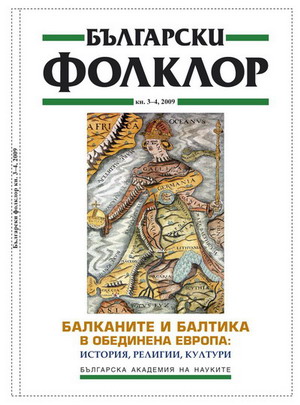Политически преходи и научни парадигми
Political Transitions and Scientific Paradigms
Author(s): Stanoy StanoevSubject(s): Anthropology
Published by: Институт за етнология и фолклористика с Етнографски музей при БАН
Summary/Abstract: The author shares in this paper his impressions and reflections of the study of joke and joke telling in Estonia and Bulgaria. Despite of the fact that this research area was developed only in the last two decades and the scholars who work in it are not numerous, the state of the research in both countries allows to outline several distinct characteristics of the studies. On the one hand, the common socio-cultural frames of the post-socialist transition period set the pattern for relatively similar orientations in the investigation of joke telling. Firstly, the study of political jokes from the near past could be mentioned. All ex-socialist countries have rich heritage in this respect. Secondly, the attention of the researchers is focused on the images of the ethnic ‘other’. This is due to the processes of democratization which – especially in comparison with the previous political regime – stress on various aspects of social differentiations. On the other hand, the particular social and political contexts in Estonia and Bulgaria determine some specifics of the fields of research. Bulgarian scholars aim at embracing the diversity of the jokes as a contemporary folklore form. Estonian studies concentrate preliminary on problems of ethnic otherness, on its images and basic characteristics. This attitude is relevant to the historical context – the problem of ethnic identity had acquired special importance after Estonia’s regaining independence. Similar conclusions could be drawn in respect to research approaches as well. Bulgarian scholars analyze the joke texts in order to reveal some important ways in which the cultural identity is constructed. Estonian folklorists prefer to put strong emphasis on the collection and classification of texts as a basis for revealing the deeper tendencies of joke development.
Journal: Български фолклор
- Issue Year: XXXV/2009
- Issue No: 3-4
- Page Range: 066-072
- Page Count: 7
- Language: Bulgarian
- Content File-PDF

